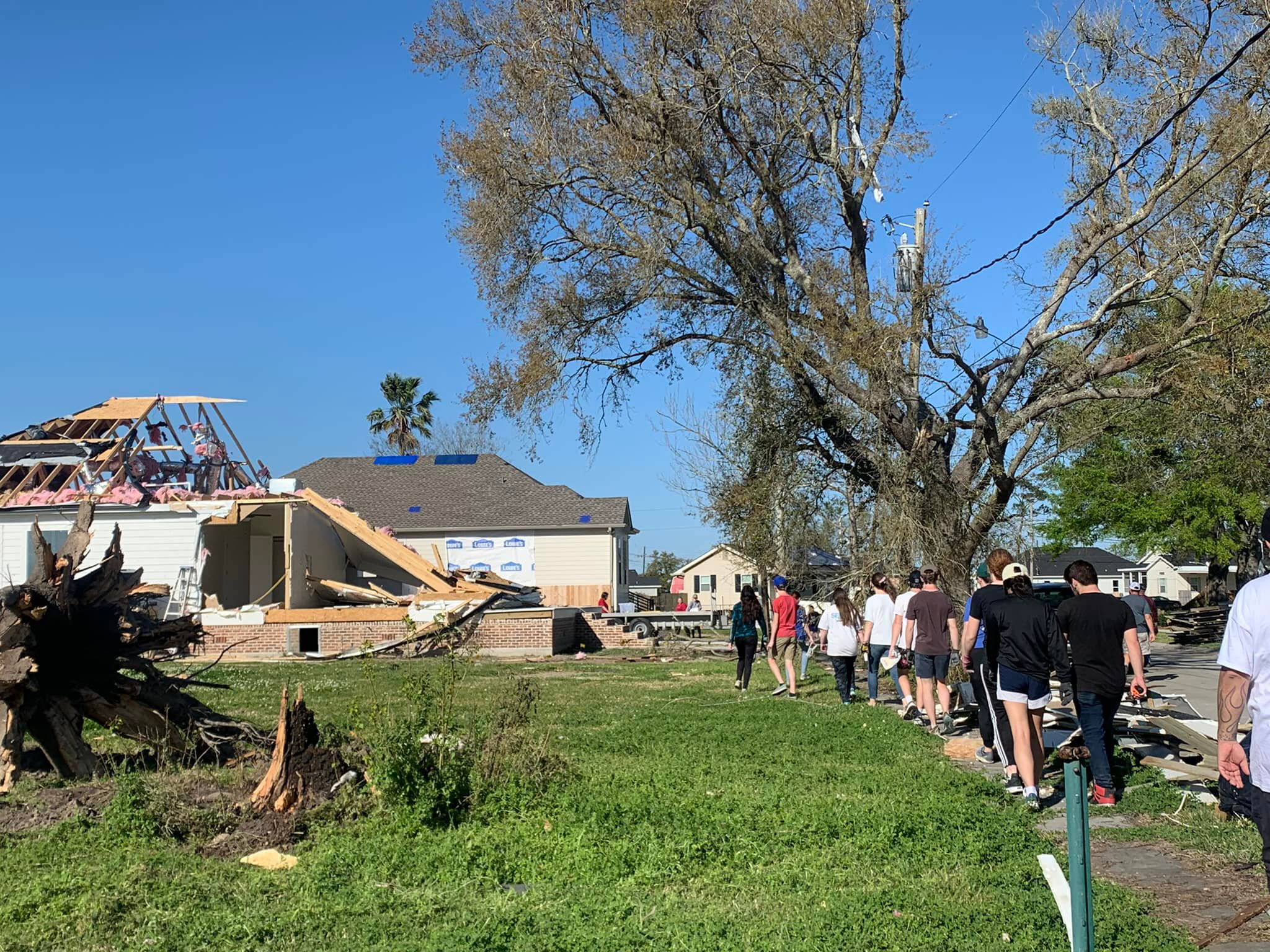When Ginni Hagedorn and her students got weather advisory alerts on their cellphones during a mission trip in Louisiana last month, they didn’t think much of it.
She’s a teacher at Cook Inlet Academy in Soldotna, and has chaperoned many service trips in the past. But on their second full day of the trip to New Orleans and Arabi, a town in St. Bernard Parish, which they took the last full week of March, a heavy rain and flash flood storm was in the forecast.
“We had no idea what that might mean,” Hagedorn said.
After she heard storm sirens and what sounded like the rumble of a freight train, she looked out the window and saw a tornado.
“It was unbelievable, I’ve never seen anything like it,” Hagedorn said.
She said she rushed to make sure her students — 10 high schoolers from Cook Inlet Academy — were accounted for. She said she experienced “a brief moment of panic” as she ran to the upper level of the building to check in on three kids, and remembers telling others to back away from the windows.
“At that moment I felt like this is not what I signed up for,” Hagedorn said.
The old elementary school they stayed in during the trip was constructed of mostly brick, she said, so she was relatively comfortable with its structural integrity.
And then, she said, about as fast as the twister came, it went.
“It really went past pretty quickly,” she said.
In the hours and days that followed, Hagedorn said the building had no electricity or hot water. Cell signals were interrupted, and only power companies had clearance to drive the streets.
Anna Nunn, a sophomore who was on the trip, said a lot of the kids were used to adverse weather, so they didn’t give the tornado warning much thought at first.
“We live in Alaska and we get tsunami warnings all the time,” she said. “Nobody actually took it seriously.”
Nunn said she looked out the window and realized it was serious.
“It was right there,” she said. “As we looked out the window, all the power fuse boxes started to blow, and everything looked like something out of a horror movie or something.”
Once the tornado passed their area, Nunn said she could see some of the destruction from the window that night.
Grace Henry, a freshman, was another student on the mission trip. She was mostly concerned with contacting her loved ones back home.
“I was kind of just worried that people at home weren’t going to know what was happening because we couldn’t call,” she said. “So I wasn’t really worried for myself, because I knew we were in a safe place, but I was worried that the people around me and my family and my friends weren’t going to know that I was safe.”
After the group was allowed back outside, Henry said the students adapted their mission trip to help with tornado recovery. She said they set up food and supply stands for people in the community, and helped clean debris left by the twister.
“There were things … that were salvageable, but some of the houses were completely torn down,” Henry said.
This was her first service trip, and she said it changed her outlook.
“Seeing how everybody comes together and no one really had a bad attitude about it, that just kind of opened my eyes to a whole new perspective,” Henry said.
Hagedorn said chaperoning students during active inclement weather was “surreal,” but otherwise a positive experience.
“It was just otherworldly,” she said. “It was really eye-opening for the kids to see that it was that close to us.”
Reach reporter Camille Botello at camille.botello@peninsulaclarion.com.

